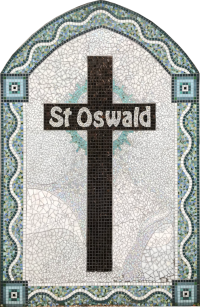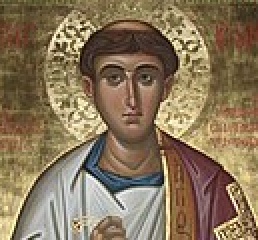Everyone knows that it was on ‘ the feast of Stephen’, that ‘good king Wenceslas looked out’, as the carol tells us.
The ‘feast of Stephen’, which falls on 26th December, honours a very brave man – the first Christian martyr.
Stephen was a member of the church in Jerusalem in its very early days, and soon found himself involved with six others in administering the allocation of food to those in need. The apostles, who were the leaders of the church, felt that it wasn’t appropriate for them to abandon preaching and ‘serve tables’, so they selected these seven to do the job for them. Stephen, however, quickly revealed hidden gifts as an eloquent spokesman for the Christian cause.
The Temple authorities, who had already had trouble with the apostles, were soon alerted to this new and hitherto unknown evangelist. They decided to make an example of him, thus firing a warning shot, as it were, across the bows of the apostles themselves. So, they arrested Stephen and accused him of speaking against the two central elements of their religion – the ‘holy place’ (the Temple) and ‘the customs Moses handed down to us’ (the Law). It’s always dangerous to criticise a monument or a custom!
Given the right to defend himself, Stephen instead launched into an eloquent and at times biting account of Jewish history, culminating in the accusation that they had committed the worst possible sin by killing the Messiah.
Inflamed by his words, his hearers abandoned any pretence of legal impartiality, rushing towards him and dragging him out of the city to a place where they began to stone him to death. Stephen, the rank and file Christian, died under a hail of rocks for claiming that Mary’s Son was the promised Messiah.
That is most probably the reason why the first martyr is honoured on the day after we celebrate the birth of the Saviour. It’s a bit like the myrrh in the gifts of the Wise Men – a reminder, as we celebrate, that the bitter shadow of a cross is never far away from this story.
Photo: Janos Fejervari, CC BY-SA 3.0 via Wikimedia Commons

